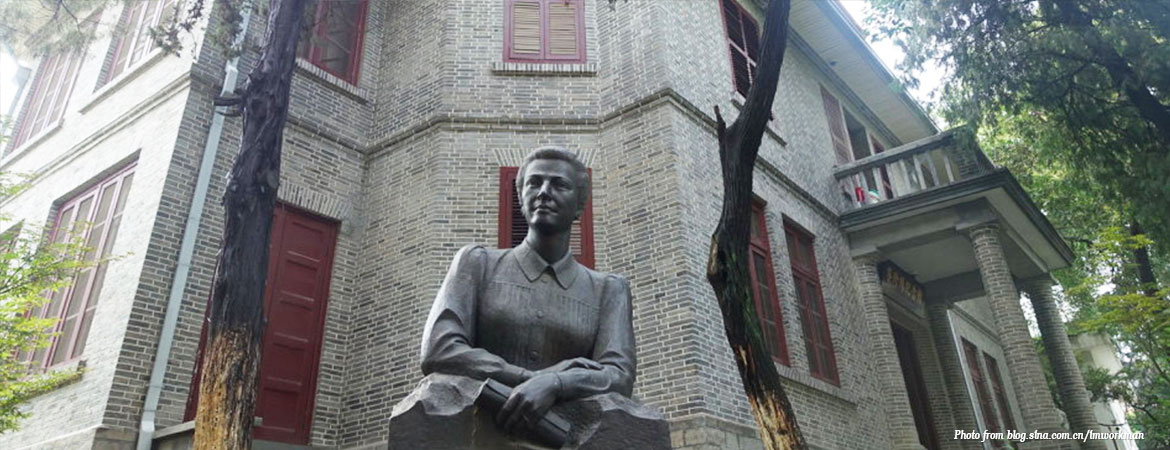Sai Zhenzhu
Pearl Sydenstricker Buck (June 26, 1892–March 6, 1973), also known by her Chinese name Sai Zhenzhu (Chinese: 赛珍珠; pinyin: Sài Zhēnzhū), was an American writer who spent most of her life until 1934 in China. Her novel The Good Earth was the best-selling fiction book in the U.S. in 1931 and 1932, and won the Pulitzer Prize in 1932. In 1938, she was awarded the Nobel Prize in Literature, "for her rich and truly epic descriptions of peasant life in China and for her biographical masterpieces."
After her return to the United States in 1935, she continued her prolific writing career, and became a prominent advocate of the rights of women and minority groups, and wrote widely on Asian cultures, becoming particularly well known for her efforts on behalf of Asian and mixed race adoption.
She recalled in her memoir that she lived in "several worlds," one a "small, white, clean Presbyterian world of my parents," and the other the "big, loving merry not-too-clean Chinese world," and there was no communication between them.[4] The Boxer Uprising greatly affected the family; their Chinese friends deserted them, and Western visitors decreased. Her father, convinced that no Chinese could wish him harm, stayed behind as the rest of the family went to Shanghai for safety. A few years later, Pearl was enrolled in Miss Jewell's School there, and was dismayed at the racist attitudes of the other students, few of whom could speak any Chinese. Both of her parents felt strongly that Chinese were their equals (they forbade the use of the word "heathen"), and she was raised in a bilingual environment, tutored in English by her mother, in the local dialect by her Chinese playmates, and in classical Chinese by a Chinese scholar named Mr. Kung. She also read voraciously, especially, in spite of her father's disapproval, the novels of Charles Dickens, which she later said she read through once a year for the rest of her life.
From 1920 to 1933, the Bucks made their home in Nanjing, on the campus of the University of Nanking, where both had teaching positions. Buck taught English literature at the private, church-run University of Nanking 金陵大学, Ginling College 金陵女子大学 and at the National Central University 国立中央大学. In 1920, the Bucks had a daughter, Carol, afflicted with phenylketonuria. In 1921, Buck's mother died of a tropical disease, sprue, and shortly afterward her father moved in. In 1924, they left China for John Buck's year of sabbatical and returned to the United States for a short time, during which Pearl Buck earned her Master's degree from Cornell University. In 1925, the Bucks adopted Janice (later surnamed Walsh). That autumn, they returned to China.
From Wikipedia
